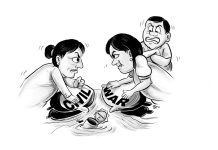
GOODWILL alone can’t fix structural barriers: delayed pay, outdated materials, lack of technological support, and lingering stigma. Cultural norms still frame emotional distress as a private matter, and many women hesitate to seek help. Most BHWs are women too, carrying a “double burden” of community service and unpaid domestic work—making them both empathetic and vulnerable to burnout.
Strengthening this frontline requires timely pay, practical training, and tools for tracking and referral. Other countries offer models—India’s ASHA program, Ghana’s mobile midwife initiative—showing that investing in grassroots health yields real gains.
The Philippines has its own promising pilots, like Mindanao’s integration of mental health into BHW training. For BHWs, like teachers, do transformative work in unmeasurable moments—a timely visit, a word of encouragement, a listening ear.
The question then isn’t whether BHWs can deliver gender-sensitive mental health care—they already do, often with little to work with. The real challenge is whether we will meet their dedication with equal support. This isn’t charity—it’s fairness. If we value community health, we must value the people who protect it through proper training, enough time, and fair pay.
So what can we do? We can’t just praise them while leaving them with outdated skills, delayed pay, and crushing workloads. We need to act.
First, pass and enforce real policies with funding and accountability. Second, make training practical, local, and gender-sensitive. Third, give them timely pay, manageable tasks, and mental health protection of their own.
Because in the end, this work isn’t about manuals—it’s about people: who delivers the care, how they’re trained, and the support they get.
In the end, BHWs are a mismanaged but deeply promising resource in building a fairer, more responsive mental health system. They already carry the trust of their communities and understand the struggles of those they serve. Now we must give them what they have long earned—training that works, support they can count on, and respect that matches their worth. Do that, and we give them more than the tools to care; we give them the power to transform lives, one quiet act at a time.
***
Doc H fondly describes himself as a “student of and for life” who, like many others, aspires to a life-giving and why-driven world grounded in social justice and the pursuit of happiness. His views do not necessarily reflect those of the institutions he is employed or connected with./PN







